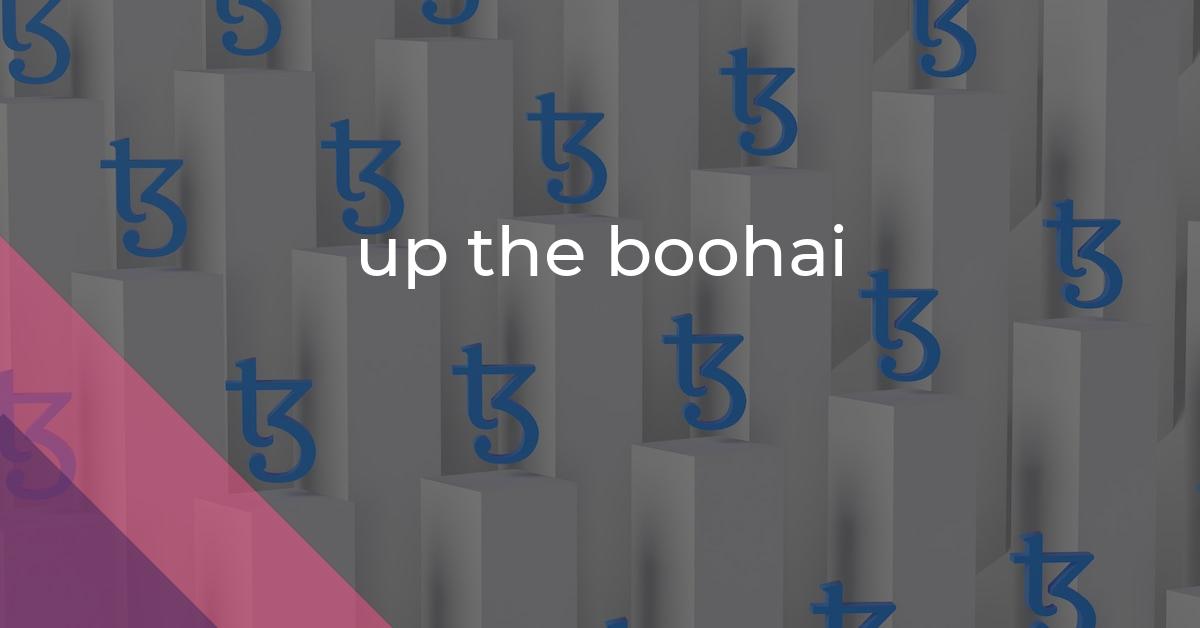up the boohai: Idiom Meaning and Origin
What does ‘up the boohai’ mean?
The idiom "up the boohai" is a colloquial expression used in New Zealand and Australia that means being in a chaotic or disorganized situation. It is often used humorously to describe a state of confusion or disorder.

Idiom Explorer
The idiom "up the walls" means feeling extremely frustrated, overwhelmed, or driven to the point of madness. It is often used to describe a situation or a person's state of mind that has become excessively chaotic or disorganized.
The idiom "up the creek" means being in a difficult or hopeless situation, often without any options or support.
The idiom "up shit's creek" means being in a very difficult or desperate situation with no hope of a solution or escape.
The idiom "up poo creek" means being in a difficult or challenging situation, often caused by a mistake or poor decision, with no clear solution or way out.
The idiom "up a tree" means to be in a difficult or uncomfortable situation with no easy way out. It implies being trapped or stuck and unable to make progress or find a solution.
The idiom "tits up" is a colloquial expression that refers to a situation or event turning out badly or failing completely. It is often used to describe a situation that has gone wrong or not as planned, and is considered vulgar and informal in nature.
An idiom referring to a situation or event that appears to be chaotic, disorganized, or confusing.
The idiom "mess up" means to make a mistake or to do something incorrectly, often resulting in a negative or chaotic outcome.
The idiom "kick bollocks scramble" refers to a chaotic and disorganized situation caused by a sudden disturbance or act of aggression. The imagery of the idiom emphasizes the disruptive and disorderly nature of the event.
Baffling Origins
The idiom "up the boohai" is a unique and intriguing phrase that has captured the curiosity of language enthusiasts. It is primarily used in Australia and New Zealand and is considered a colloquial expression with a humorous or lighthearted tone.
One fact about the idiom "up the boohai" is that it is primarily used in Australia and New Zealand. It is considered a colloquial expression and typically carries a sense of a humorous or lighthearted tone. In these regions, the idiom is often used to denote being lost, confused, or disoriented, either in a literal or metaphorical sense. It can also convey a state of chaos or disorder. It's similar to the idiom "up poo creek", which shares the theme of being in a difficult situation, but "up the boohai" has a more light-hearted and humorous connotation.
Another related idiom is "Mexican breakfast", which is used to describe a messy situation or an outcome that is less than desirable. Similarly, "up the boohai" can be employed to express a state of chaos or disorder. Both idioms highlight the idea of things not going as planned or being unexpectedly complicated.
Additionally, "boohai" in the idiom seems to have no specific meaning beyond its usage within this phrase. It is likely a nonsensical word created solely for the purpose of the idiom. This adds to the playful and whimsical nature of the phrase.
When editing articles, it's important to follow certain rules to ensure clarity, coherence, and effectiveness. For example, using short paragraphs that are 2-3 sentences long helps to improve readability. Similarly, using short sentences and simple words and phrasing helps to make the article more accessible and easier to understand. The use of a conversational style and friendly, informal tone helps to engage the reader and make the article more relatable.
One key aspect of editing is to vary the language and avoid repetition. This keeps the article interesting and prevents it from becoming monotonous. It also helps to capture the reader's attention and maintain their interest throughout the article. It's important to vary the language not only within each paragraph, but also throughout the entire piece.
Another important rule is to use active voice. This makes the article more dynamic and engaging. It also helps to convey the information in a clear and direct manner. By using active voice, the article becomes more straightforward and concise.
When editing articles for HubSpot, it's crucial to adhere to AP style. This ensures consistency and professionalism in the writing. Following AP style includes removing any introductory or summary paragraphs and using short paragraphs instead. Transitional phrases should also be removed, and the article should get straight to the point.
The idiom "up the boohai" is an amusing and mysterious phrase that has captured the interest of language enthusiasts. It is primarily used in Australia and New Zealand and carries a humorous or lighthearted tone. The meaning of "up the boohai" is somewhat ambiguous and can vary depending on the context. It is often used to denote being lost or confused, or to express a state of chaos or disorder. The idiom is similar in theme to "up poo creek" and "Mexican breakfast", which also convey difficult or messy situations. The use of short paragraphs and sentences, simple language, and a conversational tone helps to improve the clarity and readability of the article. Following AP style and adhering to the rules outlined ensures that the article is concise, well-structured, and engaging. So next time you come across the idiom "up the boohai," remember its whimsical nature and the cultural associations it holds. And if you ever find yourself "up poo creek" or in a "Mexican breakfast"-like situation, just embrace the chaos and let the playful spirit of these idioms guide you through.
Example usage
Examples of how the idiom *up the boohai* can be used in a sentence: 1. He claimed that his computer crashed because he spilled coffee on it, but I think he's just making up stories to cover his incompetence. He's really taking us up the boohai! 2. The politician promised to lower taxes and improve public services, but once elected, he did nothing. It's clear that he took the voters up the boohai with empty promises. 3. The company advertised their product as the best on the market, but when I tried it, it didn't live up to its claims. I feel like they took me up the boohai with false advertising.
The idiom *up the boohai* is used to describe a situation where someone is deceived, misled, or taken advantage of. It typically suggests that someone has been led astray or given false information, resulting in a negative outcome or being tricked into believing something that is not true.
More "Slang" idioms



